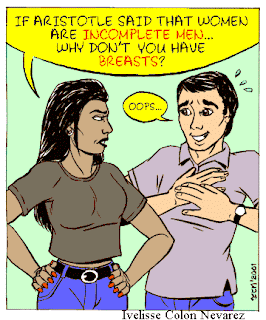Rachel Evans Held has a piece up today entitled,
"How (not) to respond to a natural disaster:"
which points out how John Piper and Skye Jethani respectively tell Christians the meaning of the earthquake for Christians. "One presumes to know the mind of God," she observes; "the other simply imitates the actions of Jesus." You'll find which is which and her response to both men when you read her post, which I'll link to below.
And you'll read how helpfully agnostic Held Evans can be, how helpfully open. She says, "We cannot know for sure why these things happen. But we can weep.... The Japanese people don't need our lectures; they need our love." Now that's quite a response. And some of us are weeping; I know a Japanese mother is crying here in the USA, where she studies English, although she was to board an airplane for home, where her daughter was to have wed her own bridegroom in Sendai later this month. Sadness. Profound sorrow.
This, then reminds of a really biblical response.
It's very similar to Rachel Held Evans's response of empathy.
It's also the Jewish, pre-Jesus response
of an earthquake or of the Earth herself.
Well, hmm, only
some Christians might agree it is a
biblical response. And
most Jews would agree, that if biblical, it makes no mention of G-d whatsoever. And then many Christians and Jews would question whether it was really ever canonical, although entirely historical, in the first place. It's the stuff of translation and of gendered translation and such. Pathetic really.
Without further ado, here it is (in four - or five - translations - if you'll work with me on a fifth):
25 Great sorrow came upon Israel,
.....wherever they lived.
26 Nobles and elders broke out wailing,
.....maidens and young men lost their vigor,
.....and the women's beauty was marred.
27 Every bridegroom took up the dirge
.....while his bride sitting in the bedchamber turned to mourn.
28 Indeed, the earth had quaked against its inhabitants,
.....and the entire house of Jacob was clothed in shame.
..........--
Jonathan A. Goldstein, for the Anchor Bible series
25 Israel mourned deeply in every community, 26 rulers and elders groaned, maidens and young men became faint, the beauty of women faded. 27 Every bridegroom took up the lament; she who sat in the bridal chamber was mourning. 28 Even the land shook for its inhabitants, and all the house of Jacob was clothed with shame.
..........--the Revised Standard Version translation team
25 And there was great mourning in Israel, in
...............every place of theirs.
26
.....And rulers and elders groaned,
virgins and young men weakened,
..........and the beauty of the women was
...................deformed.
27 Every bridegroom took up lamentation;
..........she who sat in the bridal chamber was in
...................mourning.
28 And the land quaked for those dwelling in it,
..........and all the house of Iakob was clothed
...................with shame.
..........--
George Themelis Zervos, of the NETS translation team
25 καὶ ἐγένετο πένθος μέγα ἐπὶ Ισραηλ
..........ἐν παντὶ τόπῳ αὐτῶν.
26 καὶ ἐστέναξαν ἄρχοντες καὶ πρεσβύτεροι,
..........παρθένοι καὶ νεανίσκοι ἠσθένησαν,
.....καὶ τὸ κάλλος τῶν γυναικῶν ἠλλοιώθη.
27 πᾶς νυμφίος ἀνέλαβεν θρῆνον,
.....καὶ καθημένη ἐν παστῷ ἐπένθει.
28 καὶ ἐσείσθη ἡ γῆ ἐπὶ τοὺς κατοικοῦντας αὐτήν,
.....καὶ πᾶς ὁ οἶκος Ιακωβ ἐνεδύσατο αἰσχύνην.
..........---some anonymous Jewish translator rendering
................some anonymous Jewish writer's Hebrew into Hellene
....................in, of all places, Alexander the Great's Alexandria, Egypt
To be sure, Goldstein and the RSV team and Zervos are only working from the Hellene, bringing the Greek language into their English. The real struggle for them is to know how to render the preposition
epi (ἐπὶ). It might have been written, and certainly can be read, as a bookend preposition, appearing at the start of the poetic stanza of the initial verse (25) and then at some point of the ending verse (28), which concludes the sad song.
Notice in verse 25, Goldstein chooses "upon" for the English, while the RSV team and Zervos make it "in." What's better "upon Israel" or "in Israel" or does it make a difference? But then in verse 28, to round out the poetic stanza, Goldstein has "against." In contrast, the RSV team and Zervos have the opposite of "against": "for."
I think all these men translating have missed the fact that the phrase for "the earth" or "the land" is in the feminine form in Greek:
Hē Gē (ἡ γῆ). That's not so important until you're trying to translate the feminine pronoun:
autēn αὐτήν. She's such a troublesome little pronoun for
English bible translators these days! Should she be he or she or it?
Couldn't we all just as easily note the Pathos, specifically the Penthos, of the Earthquake here? Everybody is sad and is weeping. Old people, young people, brides and bridegrooms. Even the Earth is. If great sorrow has come
upon Israel (men and women), as Goldstein shows it has, then listen again to that Greek of verses 25 and 28 of I Maccabees 1:
25 And It birthed - Sadness did - a tremendous pain upon Isra-El,
..........in each of Its places - His places, Her places.
28 And She quaked - Earth did - a shaking upon those of
..........Her household,
.....And everybody of Jacob's house dressed with Her in shame.
(If that's not enough Bible for you,
then go here for some real "New Testament." And then do notice what Held Evans says that Jethani says that Jesus says -- and what he does not say, while he's weeping, while he's helping, when it all seems way too late.)
Now, if you're really ready, then please go read
Rachel Held Evans's post.

